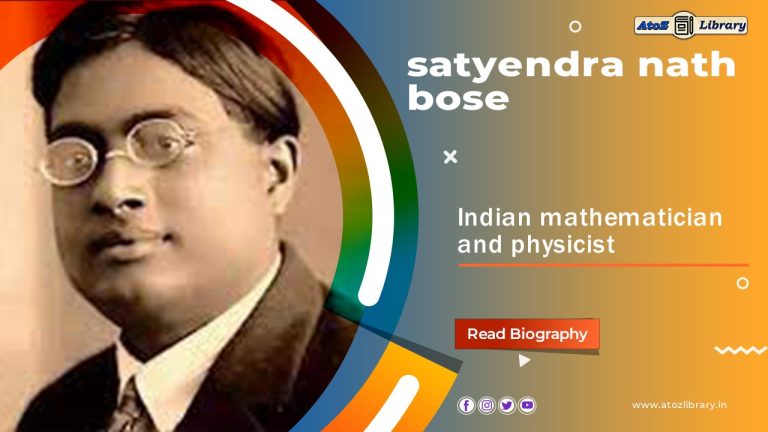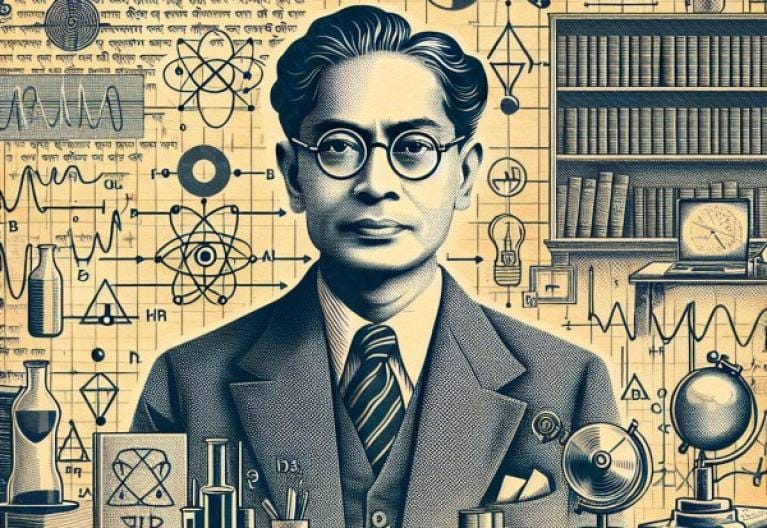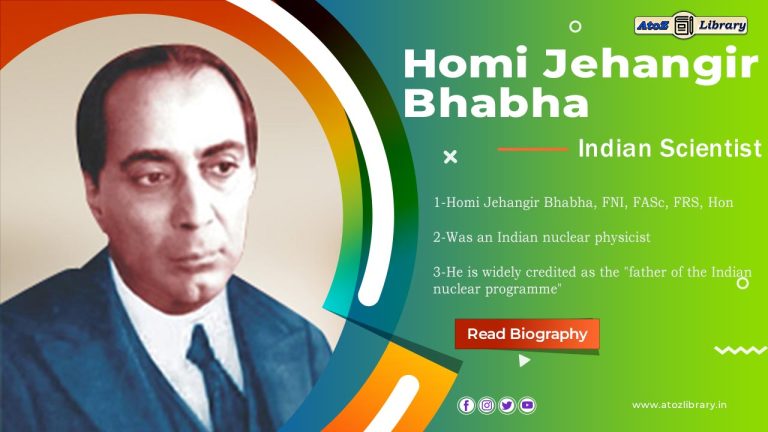Introduction
Raja Ram Mohan Roy was a prominent Indian social reformer, philosopher, and intellectual who played a pivotal role in the 19th century Indian Renaissance. He is widely regarded as the father of the Indian Renaissance, and his contributions to Indian society have had a lasting impact on the country’s cultural and intellectual landscape.
Born in 1772 in Radhanagar, Bengal, Raja Ram Mohan Roy grew up in a privileged family and received an excellent education in both Indian and Western traditions. His exposure to different cultures and ideas had a profound impact on his thinking, and he became deeply committed to social reform and the promotion of education and intellectual discourse in India.
Throughout his life, Raja Ram Mohan Roy worked tirelessly to challenge traditional Hindu customs and practices that he believed were outdated and harmful to society. He advocated for social and religious reforms, including the abolition of the caste system and the practice of sati, the education of women, and the promotion of religious tolerance and understanding.
Raja Ram Mohan Roy’s legacy continues to be celebrated in India and around the world, and his contributions to Indian society have had a lasting impact on the country’s cultural and intellectual development. In this biography, we will explore the life, work, and legacy of this influential figure, and examine the ways in which his ideas continue to shape modern India.
Early life of Raja Ram Mohan Roy
Raja Ram Mohan Roy was born on May 22, 1772, in Radhanagar, Bengal, which is now in the Indian state of West Bengal. He was born into a prosperous Brahmin family, and his father Ramkanto Roy was a landowner and revenue collector. His family was known for its wealth, influence, and intellectual pursuits, and he received an excellent education in both Indian and Western traditions.
Raja Ram Mohan Roy was a gifted student from a young age, and he was fluent in several languages, including Sanskrit, Persian, Arabic, and English. He studied at home with private tutors, and his father also enrolled him in a local school where he learned the basics of Indian philosophy, theology, and mathematics.
At the age of 15, Raja Ram Mohan Roy was sent to Patna to work for the East India Company, where he developed an interest in Western ideas and philosophy. He also became involved in social and intellectual circles, and he began to question many of the traditional Hindu customs and practices that he believed were outdated and harmful to society.
Over the years, Raja Ram Mohan Roy continued to study and learn, and his exposure to different cultures and ideas had a profound impact on his thinking. He became deeply committed to social reform and the promotion of education and intellectual discourse in India, and his early experiences laid the foundation for the work that he would go on to do throughout his life.
Related post:- Read In Details About Sardar Vallabhbhai Patel: The Iron Man of India
Education life of Raja Ram Mohan Roy
Raja Ram Mohan Roy was a brilliant scholar with a thirst for knowledge that lasted throughout his life. He received an excellent education in both Indian and Western traditions, which equipped him with a broad range of knowledge and a deep understanding of different cultures and ideas.
As a child, Raja Ram Mohan Roy studied at home with private tutors, where he learned the basics of Indian philosophy, theology, and mathematics. He was also well-versed in several languages, including Sanskrit, Persian, Arabic, and English, which he learned from his tutors.
At the age of 15, Raja Ram Mohan Roy was sent to work for the East India Company in Patna, where he continued to study and learn. He became interested in Western ideas and philosophy, and he began to read extensively on topics such as theology, philosophy, and science.
Later, Raja Ram Mohan Roy traveled to Tibet, where he continued his studies and learned about the teachings of the Buddha. He also studied the Quran and became well-versed in Islamic theology and philosophy.
Raja Ram Mohan Roy’s broad education and deep understanding of different cultures and traditions gave him a unique perspective on Indian society and the challenges it faced. It also equipped him with the knowledge and skills he needed to become a leading figure in the Indian Renaissance and a champion of social and religious reform.
Relation with East India Company
Raja Ram Mohan Roy had a complex relationship with the East India Company. On the one hand, he worked for the company in his early years, and he was able to use his position to gain access to Western ideas and knowledge. On the other hand, he was critical of the company’s policies and the way it governed India.
During his time working for the East India Company, Raja Ram Mohan Roy witnessed the impact of British rule on India and the negative effects it had on Indian society. He was particularly concerned about the way the British were exploiting Indian resources and impoverishing local communities.
Raja Ram Mohan Roy also believed that the East India Company’s policies were contributing to social and religious divisions in India. He saw how the British were promoting Christianity and undermining traditional Hindu practices, and he believed that this was causing conflict and tension in Indian society.
Despite his criticisms, Raja Ram Mohan Roy continued to work for the East India Company for many years. He used his position to further his own education and to build relationships with British officials and intellectuals. He also used his influence to advocate for social and religious reform and to promote Indian culture and traditions.
In the end, Raja Ram Mohan Roy’s relationship with the East India Company was complicated and nuanced. While he benefited from his association with the company, he was also critical of its policies and worked to promote social and religious reform in India. His legacy as a social reformer and champion of Indian culture and traditions continues to be felt in India today.
Related post:- Know About the most successful investor Warren Buffett: Biography Of Warren Buffett
Brahmo-Somaj period in Raja Ram Mohan Roy’s life
The Brahmo-Samaj period was a defining period in the life of Raja Ram Mohan Roy. It was during this time that he founded the Brahmo-Samaj, a reform movement that sought to promote monotheism and religious tolerance in India.
Raja Ram Mohan Roy was deeply concerned about the social and religious divisions in Indian society. He believed that these divisions were holding back India’s progress and contributing to the country’s poverty and social problems. To address these issues, he founded the Brahmo-Samaj in 1828, with the goal of promoting monotheism and universal brotherhood.
The Brahmo-Samaj was a departure from traditional Hinduism, which was characterized by a complex pantheon of deities and an entrenched caste system. Raja Ram Mohan Roy rejected these aspects of Hinduism and instead emphasized the unity of God and the equality of all people.
Under his leadership, the Brahmo-Samaj became a powerful force for social and religious reform in India. The movement attracted a diverse range of supporters, including intellectuals, political leaders, and ordinary people. It also sparked controversy and opposition from traditionalists who saw it as a threat to Indian culture and traditions.
Despite the opposition, Raja Ram Mohan Roy remained committed to the Brahmo-Samaj and its goals. He continued to lead the movement until his death in 1833, and his legacy as a social reformer and champion of religious tolerance continues to be felt in India today.
Raja Ram Mohan Roy’s role as a Religious reforms
Raja Ram Mohan Roy played a crucial role in promoting religious reforms in India during the 19th century. He was a prominent advocate for religious tolerance and worked to eradicate many of the harmful practices that were common in Indian society at the time.
One of the most significant religious reforms that Raja Ram Mohan Roy championed was the promotion of monotheism. He believed that the complex pantheon of Hindu deities was confusing and contributed to social and religious divisions in India. Instead, he promoted the idea of a single, universal God, and he worked to convince others to adopt this belief.
Raja Ram Mohan Roy was also an advocate for the rights of women and lower-caste people. He worked to eradicate harmful practices such as sati (widow burning), and he was an early proponent of education for women. He also worked to promote the idea of religious tolerance, and he criticized the way that many religious traditions in India were exclusive and divisive.
One of the most notable aspects of Raja Ram Mohan Roy’s work as a religious reformer was his ability to bridge the gap between Eastern and Western ideas. He was deeply familiar with Western philosophy and religion, and he used this knowledge to promote reform in India. At the same time, he was deeply committed to the traditional culture and religion of India, and he worked to promote religious reform while preserving Indian traditions.
Overall, Raja Ram Mohan Roy’s role as a religious reformer was instrumental in shaping the future of India. His advocacy for religious tolerance and social justice continues to be felt in India today, and he is remembered as one of the country’s greatest social reformers.
Related post:- Biography of Elon Musk: Most Popular Businessman And Billionaires of The World
Role as a social reformer
Raja Ram Mohan Roy (1772-1833) was a prominent social reformer who played a significant role in the Indian social and cultural renaissance movement during the early 19th century. He was an advocate of human rights, social justice, and religious reform. His contribution to Indian society was immense, and he is considered as one of the pioneers of modern India.
Here are some of the key roles played by Raja Ram Mohan Roy as a social reformer:
- Abolition of Sati: One of the most significant contributions of Raja Ram Mohan Roy was the abolition of the practice of Sati, which was prevalent in the Hindu society. He campaigned tirelessly against this inhumane practice, and his efforts ultimately led to the passing of the Sati Regulation Act in 1829, which banned the practice of Sati.
- Women’s rights: Raja Ram Mohan Roy was a strong advocate for women’s rights and worked tirelessly to improve their position in society. He was critical of the restrictions placed on women, such as child marriage, and campaigned for the education of girls.
- Promotion of education: Raja Ram Mohan Roy recognized the importance of education in empowering individuals and promoting social reform. He set up a number of schools and colleges, including the Hindu College in Calcutta, which was one of the first modern colleges in India.
- Political reform: Raja Ram Mohan Roy was also a strong advocate for political reform. He was critical of the oppressive British colonial rule and campaigned for greater political rights for Indians. He founded the Atmiya Sabha, a political association that aimed to promote democratic ideals and to work towards the establishment of a more representative government.
In conclusion, Raja Ram Mohan Roy was a visionary social reformer who played a key role in shaping the modern Indian society. His work towards the abolition of Sati, women’s rights, religious and political reform, and promotion of education has had a lasting impact on Indian society, and his legacy continues to inspire people today.
About the end of life
Raja Ram Mohan Roy passed away on September 27, 1833, in Bristol, England, at the age of 61. He had traveled to England for medical treatment, but unfortunately, his condition deteriorated, and he passed away. His body was later brought back to India and was cremated at his family estate in Uttar Pradesh.
Raja Ram Mohan Roy’s passing was mourned by people across India, and his legacy as a social reformer and thinker continues to inspire people to this day. He is remembered as a pioneer of modern India and one of the key figures of the Indian Renaissance, whose work towards social reform, religious reform, and the empowerment of marginalized communities has had a lasting impact on Indian society.
Related post:- The Life and Legacy of Jyotirao Phule: Who dedicated his life to the cause of social justice
Conclusion
Raja Ram Mohan Roy was a visionary social reformer and a prominent figure of the Indian Renaissance who made significant contributions to the modernization of Indian society. His work towards social and religious reform, women’s rights, education, and political reform has had a lasting impact on Indian society and continues to inspire people today.
His efforts towards the abolition of the practice of Sati, which was prevalent in the Hindu society, was a major step in promoting women’s rights and was a significant contribution towards human rights. His work in establishing the Brahmo Samaj, a reformist Hindu movement that rejected idol worship and promoted monotheism, paved the way for the development of a more rational and scientific approach to religion.
Raja Ram Mohan Roy was also a strong advocate for political reform, and his efforts towards promoting democratic ideals and working towards a more representative government were crucial in India’s struggle for independence.
In conclusion, Raja Ram Mohan Roy was a great visionary and a true patriot who dedicated his life to the upliftment of Indian society. His work towards social, religious, and political reform has made him a revered figure in Indian history and continues to inspire people to this day.





